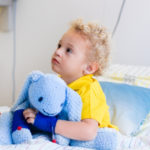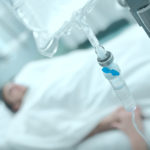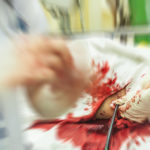
Is prednisolone an effective treatment for Bell’s Palsy in children?
Bell’s palsy or acute idiopathic lower motor neurone facial paralysis is characterised by sudden onset paralysis or weakness of the muscles to one side of the face controlled by the facial nerve. It is the third most common neurological reason for children to present acutely to hospital. In adults, there is conclusive evidence from two major recent trials that a short course of prednisolone, a cheap, widely available and safe steroid, can significantly increase the number of Bell’s palsy patients who completely recover. While the medical problems associated with Bell’s palsy are similar, in children there is no good evidence…
Principal Investigator:
Dr Shane George
Amount Awarded: $68,179
Institution: Gold Coast University Hospital
READ MORE
READ MORE
Carotid doppler ultrasound with passive leg raise for fluid responsiveness
Fluid therapy is a valuable entity and a valuable clinical entity. However there is uncertainty regarding the fluid responsiveness of patients, particularly those with severe infections. Potential risks of fluid overload (i.e. too much fluid) exist. Excessive fluid administration is associated with increased morbidity and mortality. Carotid doppler ultrasound and passive leg raise is a way of estimating fluid responsiveness. By using this technique we believe that it will tell us if a patient will tolerate an intravenous fluid bolus of 500ml. The aim of this study is to determine if doppler ultrasound of the common carotid artery blood flow…
Principal Investigator:
Dr Robert Osgood
Amount Awarded: $5,150
Institution: Logan Hospital
READ MORE
READ MORE

Kids THRIVE
When a child presents to an emergency department, or is admitted to the intensive care unit because of a life-threatening condition, they may need immediate treatment to support their breathing. In these circumstances a child is given medication to put them to sleep and the airway is secured with the insertion of a tube into the windpipe. This transition from spontaneous breathing when a child is awake to controlled respiration under anaesthetic via a breathing tube is called intubation. This procedure is technically challenging and is often associated with low oxygen levels in children. New methods of intubation which reduce…
Principal Investigator:
Dr Shane George
Amount Awarded: $282,290
Institution: Gold Coast University Hospital
READ MORE
READ MORE

Too much of a good thing: does fluid resuscitation worsen septic shock?
Patients with infections are a leading cause of presentations to the Emergency Department (ED), with severe sepsis and infection causing an estimated 20,000 deaths each day across the world. Treatment is aimed at eradicating the infection and supporting the patient while recovery can take place. Frequently patients develop low blood pressure as a result of immune response that can ultimately result in further organ injury (termed septic shock). Intravenous fluids are recommended by international guidelines as the first line therapy in the ED to treat low blood pressure of sepsis with the hope of preventing organ injury and death. Despite…
Principal Investigator:
Prof Louise Cullen
Amount Awarded: $77,233
Institution: Royal Brisbane & Women's Hospital
READ MORE
READ MORE

FEISTY – Fibrinogen Early In Severe Trauma study
This clinical trial aims to improve the quality of the resuscitation of patients with traumatic haemorrhage. We are enrolling 100 patients from four major trauma centres in Queensland. Patients admitted with severe traumatic bleeding will be given either Fibrinogen concentrate or cryoprecipitate. Time to administration of these products and effects on blood fibrinogen levels will be measured. We are using innovative technology to identify hypofibrinogenaemia; we will provide data to define the optimal method of replacement and monitoring of the end points of resuscitation; and provide data on the role of fibrinogen concentrate and its use in traumatic haemorrhage. We…
Principal Investigator:
Dr Don Campbell
Amount Awarded: $292,937
Institution: Gold Coast University Hospital
READ MORE
READ MORE




